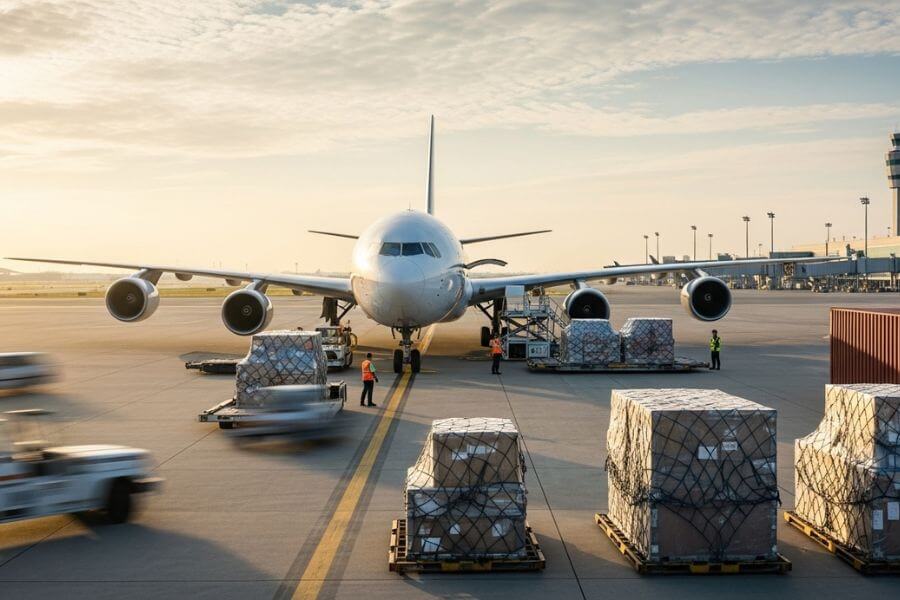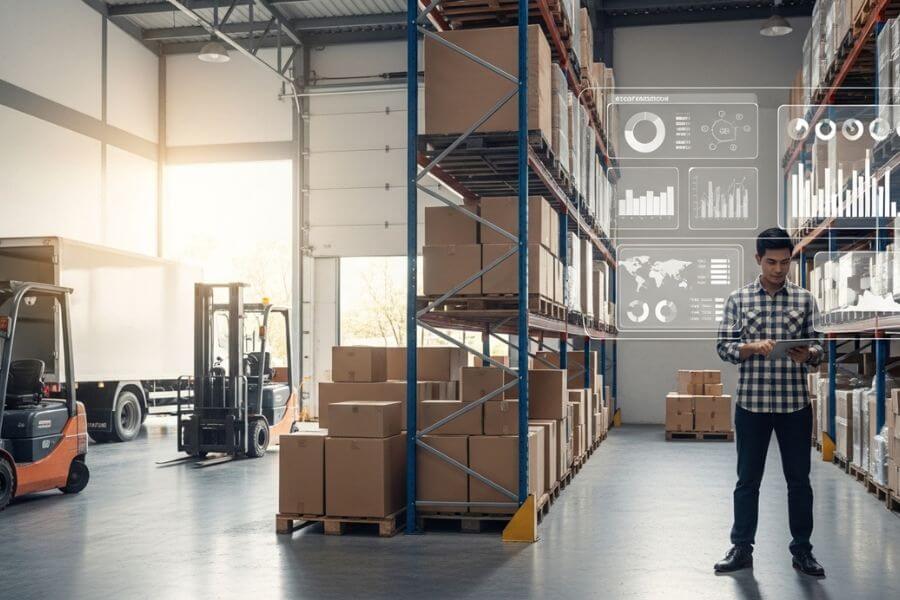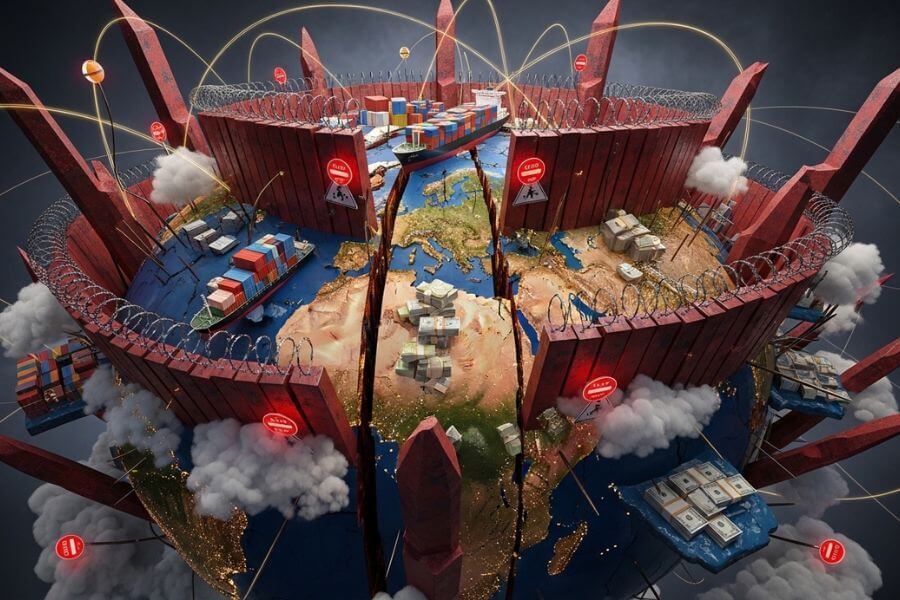In the fast-paced ecommerce and retail landscape, outsourcing logistics to a third-party logistics (3PL) provider is more than just a convenience; it’s often a necessity. But not all 3PLs are created equal. Choosing the wrong logistics partner can lead to delivery delays, poor customer service, and lost revenue. So how do you make the right choice?
Before you sign any contracts, it’s crucial to ask the right questions. In this article, we’ll walk you through the 10 most important questions to ask before choosing a 3PL partner to ensure they’re the right fit for your business.
1. What experience do you have in my industry?
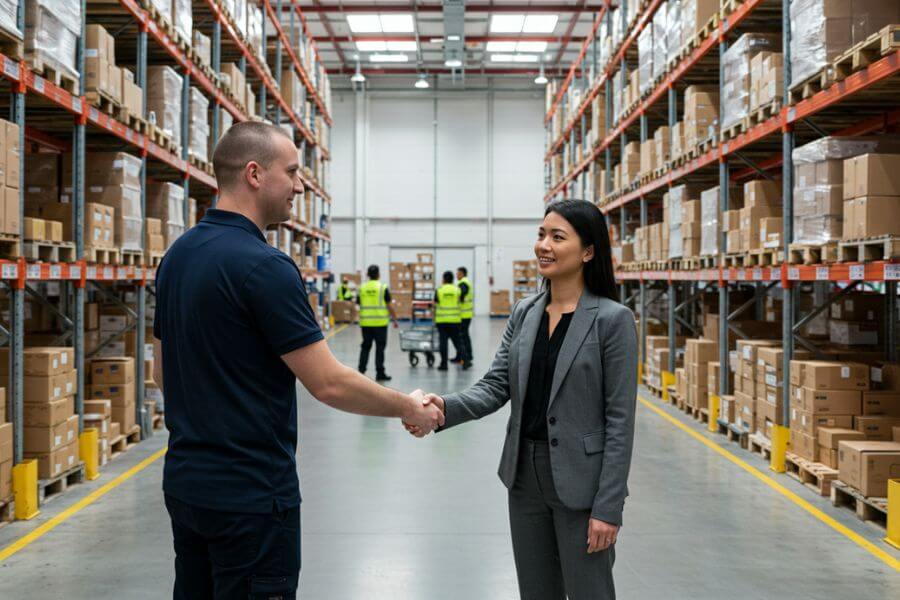
One of the first questions you should ask any prospective 3PL partner is whether they have experience in your specific industry. Logistics for consumer electronics, for example, involves different compliance requirements and handling standards than logistics for apparel or cosmetics.
Why it matters
A 3PL with industry-specific experience will already understand the nuances of your products, seasonal demand fluctuations, shipping challenges, and customer expectations. This means fewer growing pains, faster onboarding, and better overall performance.
Follow-up tips:
- Ask for case studies involving companies similar to yours.
- Request references from clients in your niche.
- Inquire about how they handle fragile, regulated, or perishable products if relevant.
2. Where are your warehouses and fulfillment centers located?
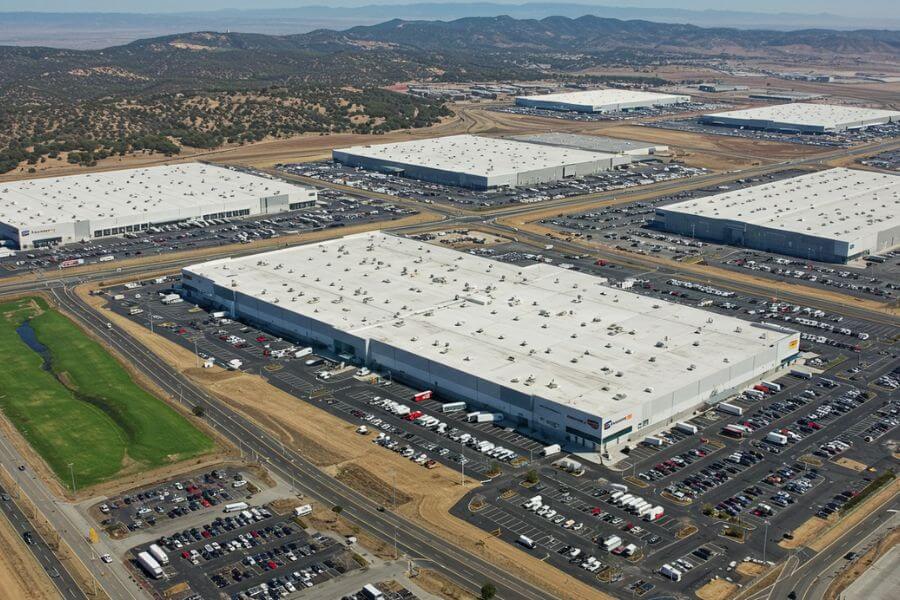
Warehouse location is one of the most important factors that affect delivery speed, shipping costs, and customer satisfaction. A well-positioned fulfillment center close to your key customer base can shave days off shipping times and reduce costs.
Why it matters
Faster delivery times can increase conversion rates, reduce cart abandonment, and lead to more repeat purchases. Additionally, proximity to major transportation hubs means fewer disruptions and more efficient shipping.
Follow-up tips:
- Ask about warehouse proximity to your customer base.
- Check if they offer multiple locations to support distributed inventory.
- See if they support cross-border fulfillment if you plan to expand internationally.
3. What technology do you use, and how does it integrate with my systems?
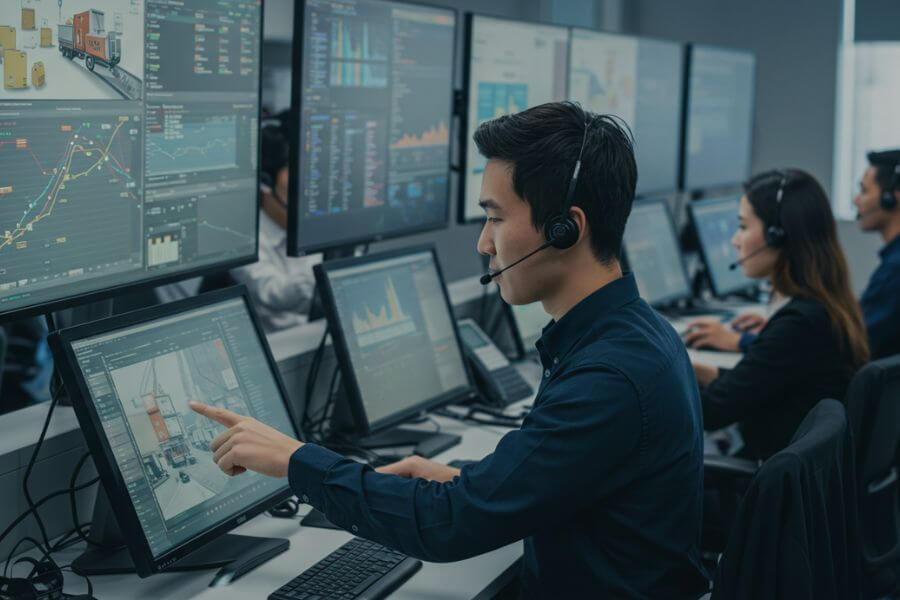
In 2025, your 3PL partner should be just as tech-savvy as your ecommerce platform. Technology is at the heart of modern logistics operations. Whether it’s real-time inventory tracking, automated shipping updates, or data analytics, a strong tech stack ensures smooth and scalable operations.
Why it matters
Without seamless integration between your systems and the 3PL’s warehouse management system (WMS), you risk order delays, inventory inaccuracies, and lack of visibility into your operations.
Follow-up tips:
- Request a demo of their tech platform or dashboard.
- Ask which ecommerce platforms they integrate with (e.g., Shopify, BigCommerce, Amazon, NetSuite).
- Find out if they provide real-time updates on inventory, shipping, and returns.
4. Can you scale with my business?
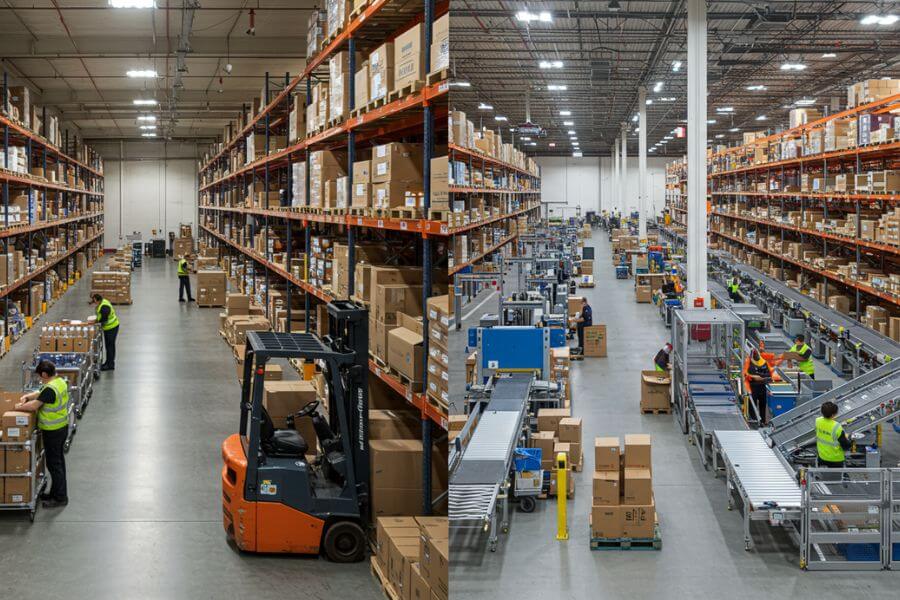
Today, you might be shipping 100 orders a day—but what if you’re shipping 1,000 next quarter or expanding to international markets next year? A good 3PL should be able to support your business growth without disruptions.
Why it matters
Switching 3PLs mid-growth can be costly and disruptive. Your logistics partner should be prepared for seasonal surges, product line expansions, new markets, or sudden growth due to promotions or viral exposure.
Follow-up tips:
- Ask how they’ve helped other clients scale.
- Inquire about peak season planning and surge capacity.
- Determine if they have the infrastructure to handle international orders.
5. What are your fulfillment accuracy and turnaround rates?
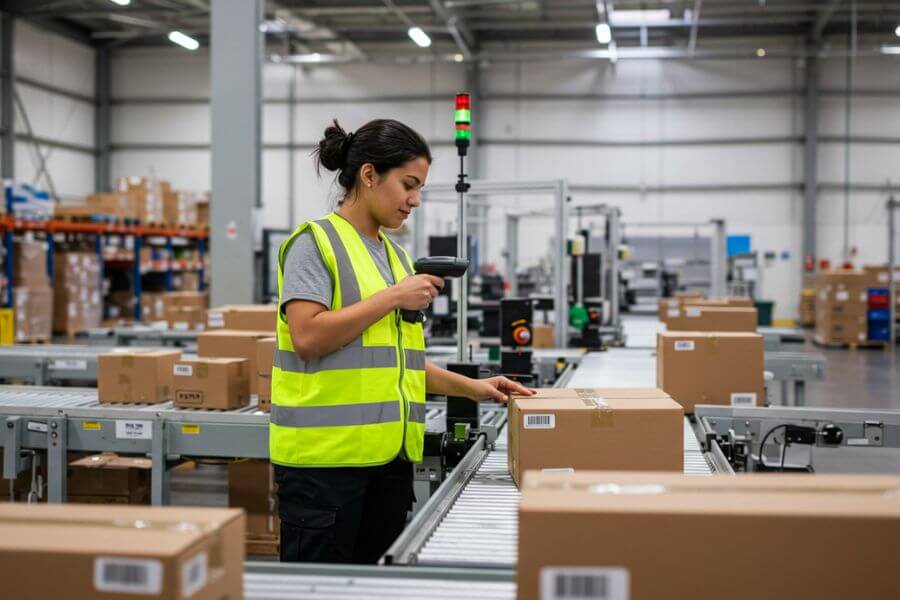
Accuracy and speed are non-negotiable in logistics. When customers receive the wrong item or their package arrives late, your brand pays the price. A reputable 3PL should be proud to share key performance indicators (KPIs) around accuracy and speed.
Why it matters
Fulfillment errors cost time, money, and customer loyalty. On the flip side, a reliable partner enhances your brand reputation and increases repeat business.
Follow-up tips:
- Ask about their current order accuracy rate (aim for 99.5% or higher).
- Inquire about average order processing times (same-day fulfillment is ideal).
- Request their on-time shipping and delivery metrics.
6. What is your pricing structure, and are there any hidden fees?

Logistics pricing can be confusing. While some 3PLs offer flat-rate pricing, many use a variable model based on storage, volume, pick and pack, shipping, receiving, and account management. It’s critical to get a clear, comprehensive breakdown.
Why it matters
Unclear pricing leads to budgeting headaches and unexpected costs. You need to know exactly how your logistics costs will scale with order volume and seasonality.
Follow-up tips:
- Ask for a full pricing sheet or example invoice.
- Find out if they offer volume discounts or custom plans.
- Watch for hidden fees like long-term storage penalties, account setup fees, or SKU overage charges.
7. How do you handle returns and reverse logistics?
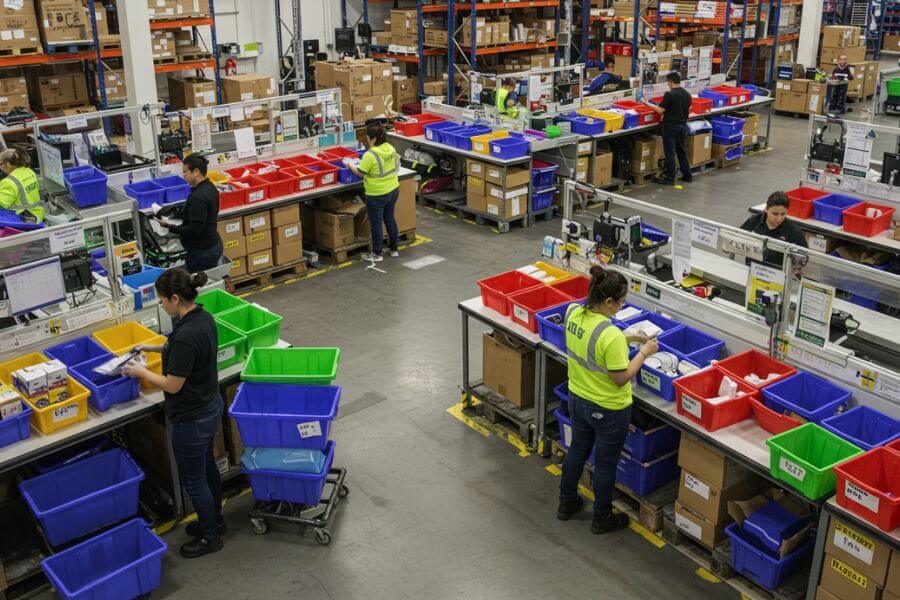
Returns are a fact of life in ecommerce. How your 3PL handles returns can directly impact your customer experience, especially in high-return industries like apparel, beauty, and electronics.
Why it matters
A smooth returns process encourages customers to shop with confidence. A poor or slow returns experience can result in bad reviews, lost customers, and increased support costs.
Follow-up tips:
- Ask about return processing time and restocking procedures.
- Find out if they offer refurbishing, repackaging, or liquidation services.
- Ensure you can track return status and receive reports on return trends.
8. How transparent is your communication and reporting?
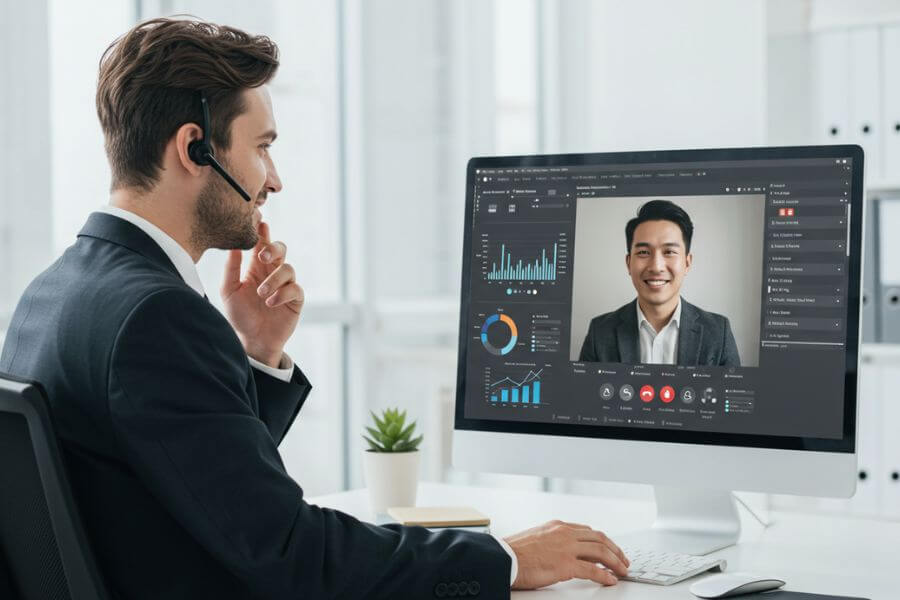
Good communication can make or break a 3PL partnership. When issues arise, and they will, you want fast, clear, and constructive communication. You also need regular reporting and data visibility.
Why it matters
When you outsource logistics, you lose some direct control over your operations. Reliable communication helps maintain trust, accountability, and proactive problem-solving.
Follow-up tips:
- Ask if you’ll get a dedicated account manager or support rep.
- Inquire about their support channels (email, phone, live chat).
- Request sample reports or dashboards to see how you’ll monitor performance.
9. What value-added services do you offer beyond standard fulfillment?
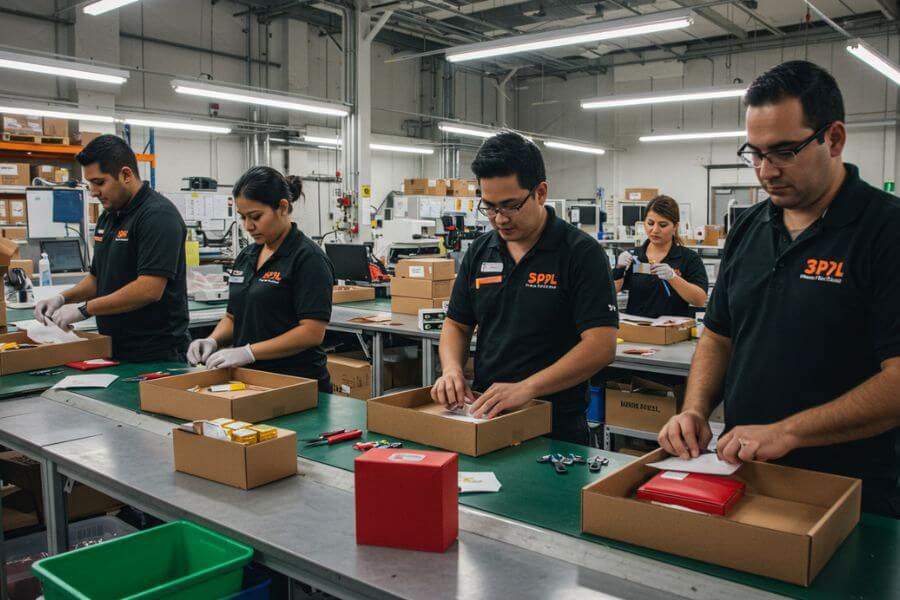
Some 3PLs offer more than just pick, pack, and ship. Value-added services like kitting, custom packaging, labeling, gift wrapping, or subscription box assembly can enhance your brand and simplify your operations.
Why it matters
Every service you can offload to your 3PL saves you time and operational overhead. Choosing a provider with value-added services can streamline workflows and reduce the number of vendors you rely on.
Follow-up tips:
- Ask about available customization options for packaging.
- See if they support B2B services like retail compliance labeling or freight forwarding.
- Ask if they offer support for crowdfunding fulfillment, subscription boxes, or influencer kits.
10. Can I speak with some of your current clients?

Finally, before you finalize any agreement, ask to speak directly with current or past clients. While reviews and testimonials can help, real conversations give you the clearest picture of what it’s like to work with a specific 3PL.
Why it matters
Hearing directly from current clients can validate a 3PL’s promises—or raise red flags. Don’t just trust the sales pitch—get real-world insights from other businesses like yours.
Follow-up tips:
- Prepare questions about communication, accuracy, tech integration, and flexibility.
- Ask how the 3PL responded to issues and how long onboarding took.
- Look for long-term clients, a sign of a reliable partner.
What are some red flags to watch out for?
In addition to asking the right questions, it’s just as important to know what warning signs to avoid. Keep your eyes open for the following red flags:
- Lack of transparency around pricing or performance metrics
- Outdated systems with no API integration
- One-size-fits-all approach with no customization
- Poor communication or slow response times during the sales process
- Limited scalability or warehouse availability
If you encounter any of these issues early in the vetting process, proceed with caution—or move on to another provider.
Bottom line
Partnering with a 3PL can help your business scale faster, streamline operations, reduce costs, and improve customer satisfaction—but only if you choose the right one. With so many logistics providers out there, it can be tempting to choose the cheapest option or the first one you find. Don’t.
Take the time to thoroughly vet your options using the 10 questions outlined above. This process not only protects your business but also sets the foundation for a long-term, strategic relationship that drives growth.









